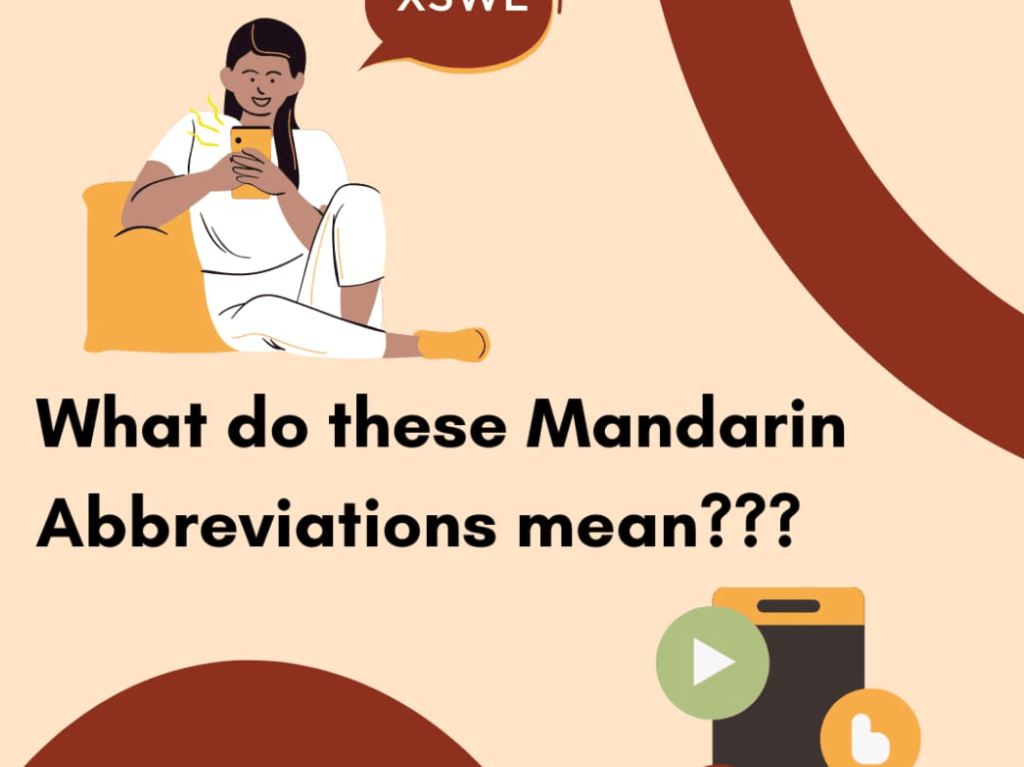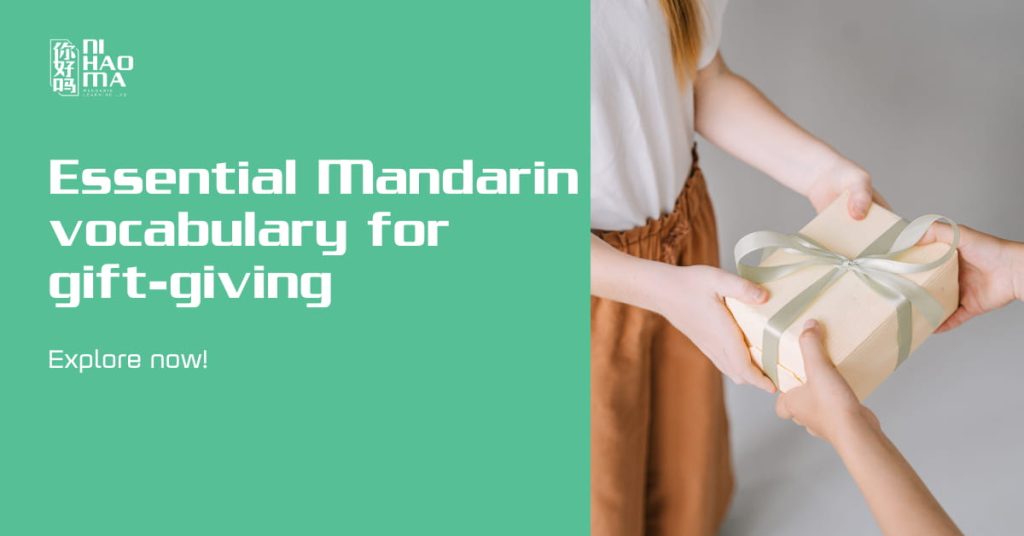Have you ever felt confused about how to connect sentences smoothly in Chinese? If you’re learning Chinese and want to improve your speaking and writing skills, understanding how to use conjunctions in Chinese is essential. Conjunctions help link ideas within a sentence, making your communication clearer, more logical, and fluid. Let’s explore the most common Chinese conjunctions and how to use them effectively with Ni Hao Ma!
What Is a Conjunction in Chinese?
A conjunction in Chinese (连词, lián cí) is a word or phrase used to connect different parts of a sentence, such as words, phrases, clauses, or even full sentences.

Conjunctions themselves don’t carry specific vocabulary meanings and cannot function as subjects, predicates, or objects. Their main role is to build connections, clarify logical relationships, and make your speech or writing more cohesive and easier to understand. Typically, they appear between the elements they connect or at the beginning of a subordinate clause.
Types of Conjunction in Chinese
Conjunctions (连接词) are crucial grammar elements in Chinese. Depending on their function and meaning, conjunctions in Chinese fall into different categories:
Coordinating Conjunctions
These conjunctions connect elements of equal grammatical importance—words, phrases, or clauses. They do not create grammatical dependency between the connected parts, and each part can usually stand on its own.
| Conjunction | Pinyin | Meaning | Example |
|---|---|---|---|
| 和 / 跟 / 与 | hé / gēn / yǔ | And, with | 我和你都是学生。 Wǒ hé nǐ dōu shì xuéshēng. → You and I are both students. |
| 以及 | yǐjí | As well as | 老师以及同学们都很高兴。 Lǎoshī yǐjí tóngxuémen dōu hěn gāoxìng. → The teacher and the students are all happy. |
| 或者 | huòzhě | Or (statement) | 你可以坐车或者走路。 Nǐ kěyǐ zuòchē huòzhě zǒulù. → You can either take a bus or walk. |
| 还是 | háishì | Or (question) | 你要咖啡还是茶? Nǐ yào kāfēi háishì chá? → Do you want coffee or tea? |
Progressive Conjunctions
These conjunctions show progression or enhancement. The second clause not only continues the idea from the first but adds more intense, significant, or detailed information.
| Conjunction | Pinyin | Meaning | Example |
|---|---|---|---|
| 不但…而且 | bùdàn…érqiě | Not only… but also | 他不但会说中文,而且说得很好。 Tā bùdàn huì shuō zhōngwén, érqiě shuō de hěn hǎo. → He not only speaks Chinese but also speaks it very well. |
| 不仅…还 | bùjǐn…hái | Not only… but also | 她不仅聪明,还很努力。 Tā bùjǐn cōngmíng, hái hěn nǔlì. → She is not only smart but also hardworking. |
| 不光…也 | bùguāng…yě | Not only… also | 我不光喜欢唱歌,也喜欢跳舞。 Wǒ bùguāng xǐhuān chànggē, yě xǐhuān tiàowǔ. → I not only like singing but also dancing. |
| 又…又 | yòu…yòu | Both… and (adjectives/verbs) | 他又高又帅。 Tā yòu gāo yòu shuài. → He is both tall and handsome. |
| 甚至 | shènzhì | Even | 他很喜欢看书,甚至连吃饭的时候也在看。 Tā hěn xǐhuān kànshū, shènzhì lián chīfàn de shíhòu yě zài kàn. → He loves reading so much that he even reads while eating. |
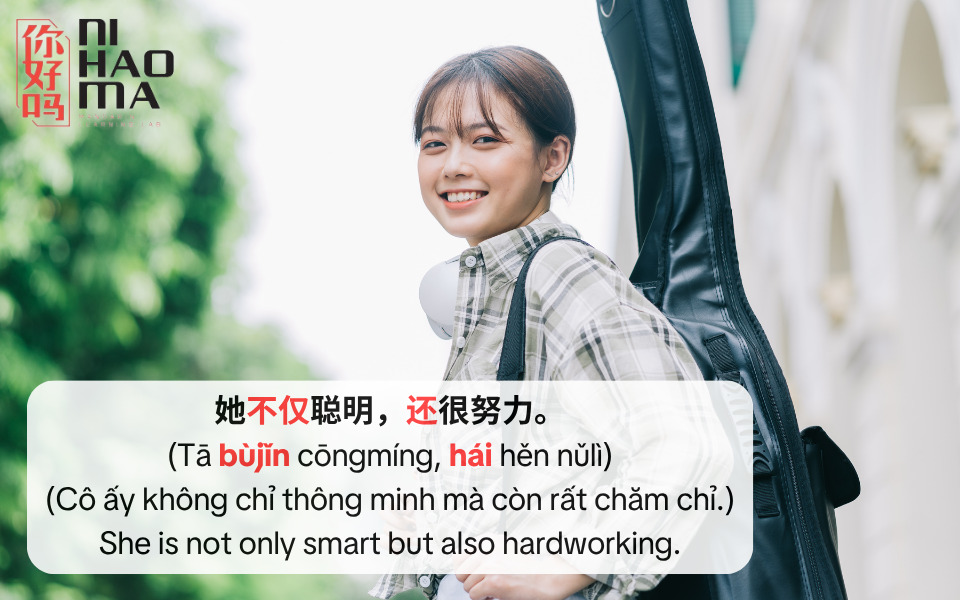
Contrasting Conjunctions
These conjunctions are used to connect clauses with opposing or unexpected content. The second part usually contrasts or contradicts the first.
| Conjunction | Pinyin | Meaning | Example |
|---|---|---|---|
| 但是 | dànshì | But (formal) | 我很累,但是还要工作。 Wǒ hěn lèi, dànshì hái yào gōngzuò. → I’m very tired, but I still have to work. |
| 可是 | kěshì | But (spoken) | 我喜欢旅行,可是没有时间。 Wǒ xǐhuān lǚxíng, kěshì méiyǒu shíjiān. → I like traveling, but I don’t have time. |
| 然而 | rán’ér | However (formal, written) | 他做了很多准备,然而还是失败了。 Tā zuò le hěn duō zhǔnbèi, rán’ér háishì shībàile. → He prepared a lot, but still failed. |
| 却 | què | But instead (emphatic) | 她看起来很冷淡,却很关心别人。 Tā kàn qǐlái hěn lěngdàn, què hěn guānxīn biérén. → She appears distant, but actually cares deeply for others. |
| 尽管…还是 | jǐnguǎn…háishì | Even though… still | 尽管下雨,我们还是出发了。 Jǐnguǎn xiàyǔ, wǒmen háishì chūfā le. → Even though it rained, we still set out. |
| 虽然…但是 / 可是 | suīrán…dànshì / kěshì | Although… but | 虽然下雨了,但是我们还是要去。 Suīrán xiàyǔ le, dànshì wǒmen háishì yào qù. → Although it rained, we still had to go. |
Causal Conjunctions
Causal conjunctions are used to connect two clauses that have a cause-and-effect relationship. These are extremely common in both spoken and written Chinese, helping sentences become clearer and more coherent when expressing the reason and result of an action or event.
| Conjunction | Pinyin | Meaning | Example |
|---|---|---|---|
| 因为……所以…… | yīnwèi… suǒyǐ… | Because… therefore… (spoken) | 因为下雨,所以我没去。 Yīnwèi xiàyǔ, suǒyǐ wǒ méi qù. → Because it rained, I didn’t go. |
| 由于……因此…… | yóuyú… yīncǐ… | Due to… thus… (formal) | 由于工作太忙,因此我没时间旅行。 Yóuyú gōngzuò tài máng, yīncǐ wǒ méi shíjiān lǚxíng. → Due to being too busy at work, I didn’t have time to travel. |
| 既然……就…… | jìrán… jiù… | Since… then… | 既然你来了,我们就一起吃饭吧。 Jìrán nǐ lái le, wǒmen jiù yìqǐ chīfàn ba. → Since you’re here, let’s eat together. |
| 因此 | yīncǐ | Therefore / Thus (written) | 他迟到了,因此错过了会议。 Tā chídào le, yīncǐ cuòguò le huìyì. → He was late, so he missed the meeting. |
| 所以 | suǒyǐ | Therefore / So (spoken) | 我生病了,所以没去上课。 Wǒ shēngbìng le, suǒyǐ méi qù shàngkè. → I was sick, so I didn’t attend class.. |
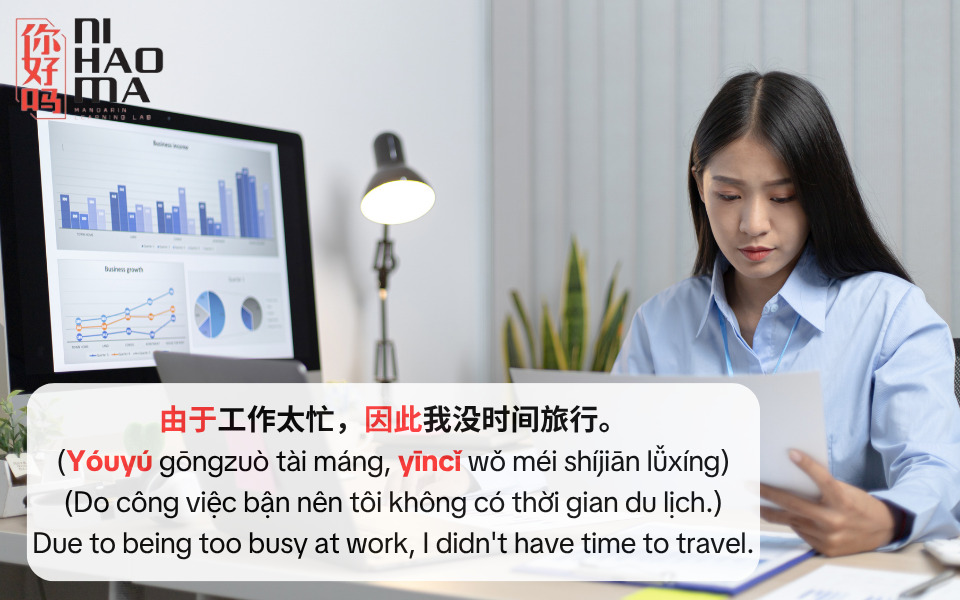
Conditional Conjunctions
Conditional conjunctions in Chinese are used to express assumptions or conditions under which an action or event occurs. These often appear in hypothetical sentence patterns like “if… then…”, similar to Vietnamese. Common conditional words like 如果 (rúguǒ), 要是 (yàoshi), 假如 (jiǎrú) are used to introduce the condition, paired with 就 (jiù) or 那 (nà) to express the result.
| Conjunction | Pinyin | Meaning | Example |
|---|---|---|---|
| 如果……就…… | rúguǒ…jiù… | If… then… | 如果明天下雨,我们就不去爬山了。 Rúguǒ míngtiān xiàyǔ, wǒmen jiù bú qù páshān le. → If it rains tomorrow, we won’t go hiking. |
| 要是……就…… | yàoshi…jiù… | If… then… (more casual) | 要是你有空,就来我家玩吧。 Yàoshi nǐ yǒu kòng, jiù lái wǒ jiā wán ba. → If you’re free, come hang out at my place. |
| 假如……就…… | jiǎrú…jiù… | Suppose… then… | 假如我中了彩票,我就环游世界。 Jiǎrú wǒ zhòng le cǎipiào, wǒ jiù huányóu shìjiè. → Suppose I won the lottery, I’d travel the world. |
| 只要……就…… | zhǐyào…jiù… | As long as… then… | 只要努力学习,就能考上好大学。 Zhǐyào nǔlì xuéxí, jiù néng kǎoshàng hǎo dàxué. → As long as you study hard, you can get into a good university. |
| 除非……才…… | chúfēi…cái… | Unless… then (only if) | 除非你亲自去,他才会相信你。 Chúfēi nǐ qīnzì qù, tā cái huì xiāngxìn nǐ. → Unless you go yourself, he won’t believe you. |
| 无论/不论/不管…都/也.. | wúlùn/bùlùn/bùguǎn…dōu/yě… | No matter… still… | 无论多忙,他都会锻炼身体。 Wúlùn duō máng, tā dōu huì duànliàn shēntǐ. → No matter how busy he is, he still exercises. |
Sequential Conjunctions
Sequential conjunctions indicate a chronological or procedural relationship between clauses or sentences. They connect events or actions in a logical sequence and are often used in both speaking and writing to narrate stories, explain procedures, or give instructions.
| Conjunction | Pinyin | Meaning | Example |
|---|---|---|---|
| 然后 | ránhòu | Then, afterwards | 我先去超市,然后去银行。 Wǒ xiān qù chāoshì, ránhòu qù yínháng. → I went to the supermarket first, then to the bank. |
| 接着 | jiēzhe | Next | 他吃完饭,接着看电视。 Tā chī wán fàn, jiēzhe kàn diànshì. → He finished eating, then continued watching TV. |
| 后来 | hòulái | Later, afterward | 她先去了北京,后来去了上海。 Tā xiān qù le Běijīng, hòulái qù le Shànghǎi. → She went to Beijing first, then later to Shanghai. |
| 紧接着 | jǐn jiēzhe | Immediately after | 火警响了,紧接着大家就跑出了大楼。 Huǒjǐng xiǎng le, jǐn jiēzhe dàjiā jiù pǎo chū le dàlóu. → The fire alarm went off, and right after, everyone ran out of the building. |
| 再 | zài | Then again | 他先洗脸,再刷牙。 Tā xiān xǐliǎn, zài shuāyá. → He washed his face first, then brushed his teeth. |
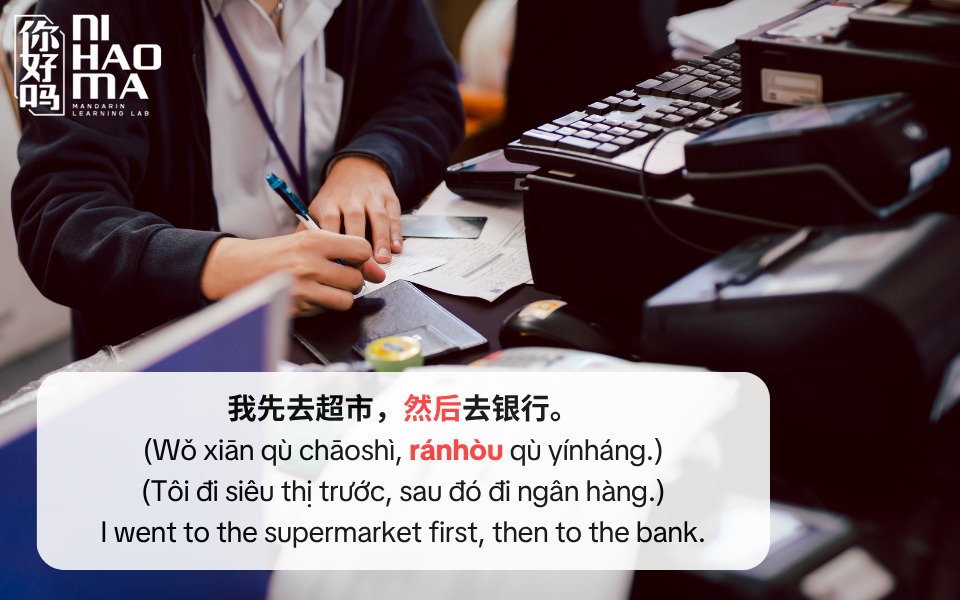
Purpose Conjunctions
Purpose conjunctions are used to link two clauses in which the second clause expresses the goal or intention of the action in the first. These conjunctions clarify the reason behind an action and typically convey meanings like “in order to…”, “so that…”.
| Conjunction | Pinyin | Meaning | Example |
|---|---|---|---|
| 为了 | wèile | In order to / For | 为了提高中文水平,我每天练习说中文。 Wèile tígāo zhōngwén shuǐpíng, wǒ měitiān liànxí shuō zhōngwén. → In order to improve my Chinese, I practice speaking every day. |
| 以便 | yǐbiàn | So that / For convenience | 我们早点出发,以便赶上火车。 Wǒmen zǎodiǎn chūfā, yǐbiàn gǎnshàng huǒchē. → We left early so that we could catch the train. |
| 以免 | yǐmiǎn | To avoid / In case | 他带了伞,以免下雨。 Tā dàile sǎn, yǐmiǎn xiàyǔ. → He brought an umbrella to avoid the rain. |
| 好让 | hǎoràng | So that / In order to | 我提前做好准备,好让考试顺利通过。 Wǒ tíqián zuò hǎo zhǔnbèi, hǎoràng kǎoshì shùnlì tōngguò. → I prepared in advance so that I could pass the exam smoothly. |
Conclusion
Through this article from Ni Hao Ma, you’ve learned all about the different types of conjunctions in Chinese. Each type serves a specific grammatical function and conveys its own nuances. Knowing how to use them properly can greatly improve the fluency and clarity of your sentences. Hopefully, this article has not only provided knowledge but also inspired you to continue your journey in mastering Chinese.

